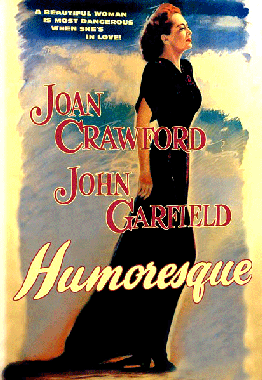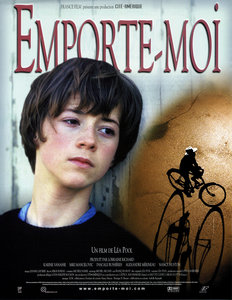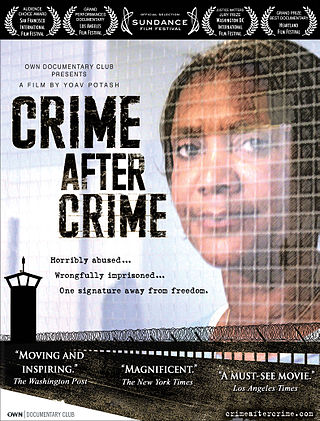
Pauline Kael was an American film critic who wrote for The New Yorker from 1968 to 1991. Known for her "witty, biting, highly opinionated and sharply focused" reviews, Kael's opinions often ran contrary to those of her contemporaries.

Music of the Heart is a 1999 American biographical musical drama film directed by Wes Craven and written by Pamela Gray, based on the 1995 documentary Small Wonders. The film is a dramatization of the true story of Roberta Guaspari, portrayed by Meryl Streep, who co-founded the Opus 118 Harlem School of Music and fought for music education funding in New York City public schools. The film also stars Aidan Quinn, Gloria Estefan, and Angela Bassett. It was director Craven's first and only mainstream cinematic film not in the horror or thriller genre, and also his only film to receive Oscar nominations.

The Story of the Weeping Camel is a 2003 German docudrama distributed by ThinkFilm. It was released internationally in 2004. The film was directed and written by Byambasuren Davaa and Luigi Falorni. The plot is about a family of nomadic shepherds in the Gobi Desert trying to save the life of a rare white bactrian camel calf after it was rejected by its mother.

Regina Lee Hall is an American actress. She rose to prominence for her role as Brenda Meeks in the comedy horror Scary Movie film series (2000–2006). She has since appeared in the television series Ally McBeal (2001–2002), Law & Order: LA (2010–2011), Grandfathered (2016), and Black Monday (2019–2021), and in the films The Best Man (1999), its 2013 sequel The Best Man Holiday, About Last Night (2014), Vacation (2015), Girls Trip (2017), The Hate U Give (2018), and Little (2019). For the comedy film Support the Girls (2018), Hall received critical acclaim, and became the first African American to win the New York Film Critics Circle Award for Best Actress.

B. Ruby Rich is an American scholar; critic of independent, Latin American, documentary, feminist, and queer films; and a professor emerita of Film & Digital Media and Social Documentation at UC Santa Cruz. Among her many contributions, she is known for coining the term "New Queer Cinema". She is currently the editor of Film Quarterly, a scholarly film journal published by University of California Press.

Lourdes Portillo is a Mexican film director, producer, and writer.

James Lewis Hoberman is an American film critic, journalist, author and academic. He began working at The Village Voice in the 1970s, became a full-time staff writer in 1983, and was the newspaper's senior film critic from 1988 to 2012. In 1981, he coined the term "vulgar modernism" to describe the "looney" fringes of American popular culture.

Byambasuren Davaa, also known as Davaagiin Byambasüren, is a Mongolian filmmaker currently residing in Germany.

Nadja Salerno-Sonnenberg is an Italian and American classical violinist and teacher.

Sérgio Assad is a Brazilian guitarist, composer, and arranger who often performs with his brother, Odair, in the guitar duo Sérgio and Odair Assad, commonly referred to as the Assad Brothers or Duo Assad. Their younger sister Badi is also a guitarist. Assad is the father of composer/singer/pianist Clarice Assad. He is married to Angela Olinto.

Humoresque is a 1946 American melodrama film by Warner Bros. starring Joan Crawford and John Garfield in an older woman/younger man tale about a violinist and his patroness. The screenplay by Clifford Odets and Zachary Gold was based upon the 1919 short story "Humoresque" by Fannie Hurst, which previously was made into a film in 1920. Humoresque was directed by Jean Negulesco and produced by Jerry Wald.

Radiant City is a 2006 Canadian film written and directed by Gary Burns and Jim Brown. It is about the suburban sprawl and the Moss family's life in the suburbs. The film is openly critical towards suburban sprawl and its negative effects, being ironic and amusing at the same time.

Set Me Free is a 1999 Canadian coming-of-age drama film by Léa Pool and starring Karine Vanasse. It tells the story of Hanna, a girl struggling with her sexuality and the depression of both her parents as she goes through puberty in Quebec in 1963. The film heavily references the French new-wave film Vivre sa vie by Jean-Luc Godard.

Audience of One is a 2007 documentary film directed by Michael Jacobs. It was premiered on 9 March 2007 at South by Southwest in Austin, Texas.
The New Century Chamber Orchestra was founded in 1992 by cellist, Miriam Perkoff, and violist, Wieslaw Pogorzelski. The goal of the founders was to present classical music in a fresh and unique way in the San Francisco Bay Area. The music director chooses the programs and guides the artistic vision and leads the seventeen members of the orchestra as part of a conductorless orchestra. Musical decisions are made collaboratively, in the goal of enhancing the level of commitment on the part of the musicians and increasing the precision, passion and power of their playing.

Crime After Crime is a 2011 award-winning documentary film directed by Yoav Potash about the case of Deborah Peagler, an incarcerated victim of domestic violence whose case was taken up by pro bono attorneys through The California Habeas Project.
A River Changes Course is a 2013 documentary by Kalyanee Mam. The film explores the damage rapid development has wrought in her native Cambodia on both a human and environmental level. The film premiered at the 2013 Sundance Film Festival on January 21, 2013 and won the Grand Jury Prize for World Documentary. The film also received the Golden Gate Award for Best Documentary Feature at the 2013 San Francisco International Film Festival.

A Bigger Splash is a 2015 psychological drama film directed by Luca Guadagnino and with a screenplay by David Kajganich from a story by Alain Page. Starring Tilda Swinton, Matthias Schoenaerts, Ralph Fiennes, and Dakota Johnson, the film is loosely based on the 1969 Jacques Deray film La Piscine and named after the 1967 David Hockney painting of the same name. It is the second installment in Guadagnino's self-described Desire trilogy, following I Am Love (2009) and preceding Call Me by Your Name (2017). It competed for the Golden Lion at the 72nd Venice International Film Festival.

The Last Black Man in San Francisco is a 2019 American drama film directed and produced by Joe Talbot in his directorial debut. He wrote the screenplay with Rob Richert and the story with Jimmie Fails, on whose life it is partly based. It stars Fails, Jonathan Majors, Tichina Arnold, Rob Morgan, Mike Epps, Finn Wittrock and Danny Glover.

















